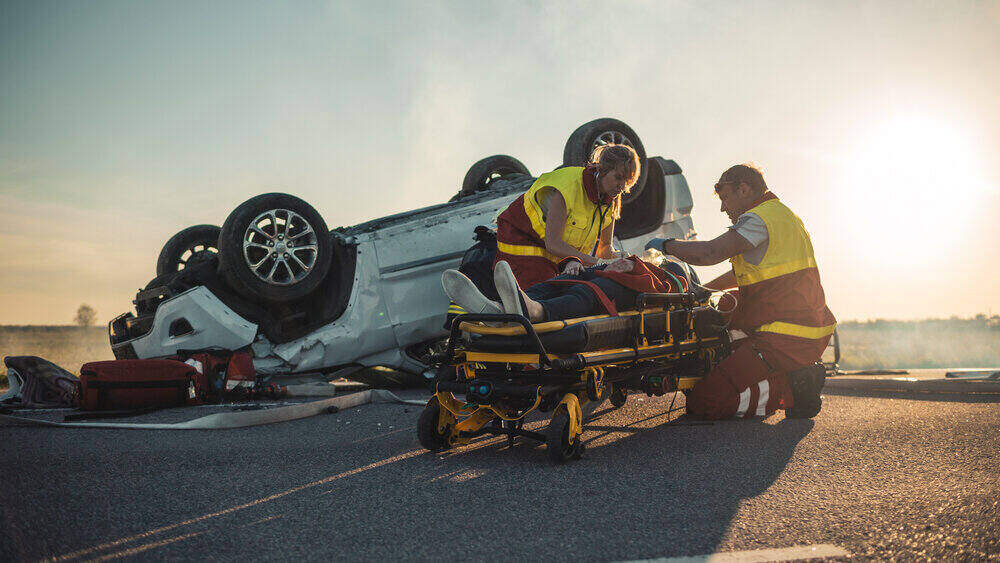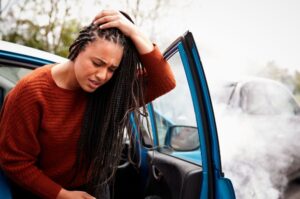
Car accident claims are typically based on who is at fault in an accident. The injured person making a claim must show that the other driver acted improperly by speeding or running a stop sign, for example.
But sometimes a driver claims a crash wasn’t their fault because they were suffering a seizure or a heart attack at the time of the accident.
Is a driver legally responsible if he or she got into an auto accident due to a medical emergency? Each year, South Carolina car accident records show that medical-related issues are reported as the primary contributing factor for several hundred collisions that cause injuries.
When representing a car accident victim who has been injured through no fault of their own, our car accident attorneys at Joye Law Firm would closely question what happened to cause harm to our client. While we feel sympathy for anyone who has experienced a serious medical event, we also work to find out whether the other driver’s medical issue was foreseeable and whether it was the actual cause of the accident.
What is the Sudden Medical Emergency Defense?
South Carolina law recognizes that there may be legitimate instances in which a driver suddenly becomes incapacitated through no fault of their own.. In South Carolina, the sudden unforeseeable incapacity defense dates to a court case known as Boyleston v. Baxley, 133 S.E.2d 796 (S.C. 1963).
In Boyleston v. Baxley, the South Carolina Supreme Court stated that “the operator of an automobile is not ordinarily chargeable with negligence if he is suddenly stricken by a fainting spell, or loses consciousness from some other unforeseen cause, and is unable to control the vehicle.”
The Court added, “However, one who relies upon this principle, in explanation of apparently negligent conduct, has the burden of proving sudden incapacity.”
Typically, the sudden medical emergency defense is seen as requiring a driver who is otherwise considered negligent to show:
- They suddenly became physically incapacitated
- The incapacity rendered them unable to control their vehicle; and
- The accident was the result of a loss of control resulting from the incapacity.
Additionally, the defendant must show that their incapacity was not reasonably foreseeable.
In another South Carolina case, Howle v. PYA/ Monarch, Inc., 344 S.E.2d 157 (S.C. Ct. App. 1986), the appeals court ruled that a driver who went into a diabetic coma just before a head-on collision was negligent because he had had symptoms prior to the accident that provided sufficient warning that a hypoglycemic episode was approaching. But he did not take the opportunity to resolve his medical issues or to stop driving.
A defendant who has been shown to be responsible for a car accident has the burden of proof when using the medical emergency defense to avoid liability. Our attorneys at Joye Law Firm have experience overcoming the medical emergency defense.
What Sudden Medical Emergencies Might a Driver Claim?
Because South Carolina’s legal guidance for the sudden medical emergency defense speaks of the burden of proving “sudden incapacity,” it provides the use of a potentially broader range of medical conditions to cite in such a defense as compared to those states that speak specifically of a loss of consciousness.
A loss of consciousness might be caused by:
- Fainting
- Seizure
- Heart attack
- Stroke
- Hypoglycemia, exceptionally low blood sugar (glucose)
- Syncope, a loss of consciousness
- A reaction to a medication
Other medical causes of sudden physical or mental inability to do something may include:
- Brain aneurysm
- Cramps
- Choking
- Severe sneezing
- Reaction to a bee/wasp sting
- Mental illness
How We Can Work to Overcome the Medical Emergency Defense
A driver claiming that a medical emergency caused a car accident must show that something happened that could not have been foreseen and that it made the driver incapable of avoiding the car accident that followed.
Here are some issues we would consider as we sought to penetrate this defense:
- Evidence of a medical issue. The defendant must provide evidence of an incapacitating incident. A driver claiming short-term issues like a leg cramp or a sneezing fit would likely need testimony from a passenger in their car to support the defense. Our attorneys would review any material evidence and closely question witnesses as part of our investigation on behalf of an accident victim. For example, testimony from first responders to the accident scene might contradict the claims that the defendant was dealing with an incapacitating medical condition.
- Was it reasonably foreseen? The most likely issue to attack in a medical emergency defense is the foreseeability of the medical problem. We would seek the defendant’s medical records and speak with doctors and others to determine whether, for instance, a defendant claiming a heart attack had had prior cardiac episodes. If we found the defendant had diabetes or a similar controllable disease, we would trace their steps prior to the accident to determine whether they had taken medication as prescribed to control symptoms of the illness.
- Causation. Did the alleged medical condition really cause the accident? The shock of an oncoming collision or having been in a collision could lead to a heart attack. A stroke could be caused by a blow to the head suffered in a crash. We would question medical evidence, examine the defendant’s behavior prior to the accident, and consider other evidence that explains the crash to determine whether other factors may have contributed to the accident. Information from the car’s “black box” or Event Data Recorder (EDR), which records numerous vehicle functions at the moment of a collision, or from an accident reconstruction specialist’s study might reveal the actual cause of a crash.
In many cases, our attorneys can identify another cause of the accident and overcome the medical emergency defense. However, refuting a medical emergency defense usually takes an exhaustive, independent investigation by an experienced legal team with the resources and dedication to uncover the true facts.
Contact Our S.C. Car Accident Lawyers
If you have been injured in an auto accident and the driver at fault is claiming a sudden medical problem caused the accident, our South Carolina car accident attorneys can determine the actual cause of the crash and hold the responsible driver accountable. Joye Law Firm has been investigating accident claims and helping car accident victims across South Carolina for more than 50 years. Our goal is to have a positive impact on the life of each person who turns to us for help.
Contact Joye Law Firm at 888-324-3100 or online for a free initial consultation. We have offices in Charleston, Columbia, Clinton, Summerville, and Myrtle Beach. Call us today to discuss how we may help you






































